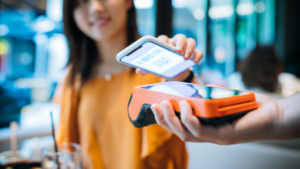iSentric adds BNPL capability to platform in Malaysia boosted by capital raising

Pic: Thinkhubstudio / iStock / Getty Images Plus via Getty Images
Special Report: Fintech company iSentric is moving to include BNPL transaction and payment processing in Malaysia to capitalise on its existing IOU Pay Platform for digital payments, mobile banking and consumer marketing campaigns and is tapping part of its recent capital raisings to develop the platform’s capability.
iSentric (ASX:ICU) will ask for shareholder approval to rename the company IOUpay Limited, at a meeting on September 30, to reflect its re-aligned focus on fintech and its rebranded digital payments platform.
Stepping into the BNPL space by adding BNPL transaction and payment processing to the IOU Pay Platform is a natural extension for the business which has existing relationships with large corporate and government businesses ranging from telcos and big brand retailers to utilities and banks.
“We have a six-year history of transaction processing for banks, telecoms and corporates,” Kenneth Kuan, chief finance officer for iSentric Malaysia, told Stockhead
“We have got access to valuable credit scoring data and a proven payments processing engine,” he stated.
iSentric already manages marketing information to customers on behalf of its corporate clients, which would be useful for its new BNPL platform capability.
Recently announced capital raisings are being used to fund the BNPL development, with part of a $3m capital raising through a Share Purchase Plan for existing shareholders priced at 3c being used for product and platform development.
This price represents a discount of 19 per cent to its volume-weighted average share price five days before August 10. The offer closes on September 4.
Existing expertise in credit scoring, payments processing
Adding the BNPL capability to its IOU Pay Platform space will be relatively easy for iSentric given its existing digital payments and processing infrastructure which deals with large volumes of transactions.
iSentric says consumers in Malaysia and Indonesia are ready for BNPL given the paucity of available consumer lending, and consumers’ declining use of credit cards.
The move to BNPL payment processing follows a strategic review by the ASX company founded in Malaysia in 2014, as a digital payments processing platform.
Typical gross margins on BNPL transactions in Australia can range from 3 to 8 per cent, depending on the type of retailer, with higher margins coming from the fashion and cosmetics, healthcare and consumer durables sectors.
These margins are amortized over the BNPL payment term which is typically 2 – 3 months.
Growth from digital payment services to mobile phone banking
In its early days, the company developed software that offered consumers a secure way to carry out financial transactions with banks and other financial companies.
Bill payments such as for electricity, water and telecoms, and money transfer features were later additions to the company’s digital services, as were selling mobile phone airtime and internet packages.
iSentric is processing around 18 million transactions per month in Malaysia, and numbers of digital transactions processed in the Indonesian market have the capacity to be several times higher.
Today, the company has three divisions – Mobile Banking for authentication, account enquiries, balance transfers and specific marketing campaigns, Digital Payments for bill payments, and money transfers, and Digital Services for analytics and content to support the on-platform commerce between merchants and consumers.
“We have renamed each business division to have a clear focus on fintech,” Kuan said.
The company recently added two new services for its customers. The ability to process debits for bank accounts. And, processing capabilities for credit and debit card payments, including consumer loan payments, and instalment payments for the BNPL market.
BNPL payment processing becomes an additional focus for the fintech business
Packaging current merchant campaigns with BNPL services in Malaysia are seen as significant growth markets for the company.
The company will maintain its existing digital commerce services for merchants and their customers, and use its IOU Pay Platform to build out into the BNPL space.
“The real focus of the BNPL platform development is around data driven product packaging for qualified consumers and BNPL payment processing. That is where the growth is in the business,” said Kuan.
“We already have telecoms and banks as customers and it is relatively easy to add a BNPL offering. The scope for BNPL is massive in Southeast Asia,” he added.
Many Malaysians and Indonesians are without bank accounts but still have strong purchase and payment histories combined with stable incomes.
A large proportion of the Malaysian adult population, around 50 per cent, and 170 million out of Indonesia’s population of 270 million, are without access to banking services.
There are a number of reasons for this. Bank lending to consumers is a highly regulated business in these countries, and only the most secure borrowers can get loans.
Credit cards do play a role in the Malaysian consumer credit market, but they are losing popularity as digital technology in the form of electronic currency is gaining ground.
The lack of bank credit options for smaller borrowers has left a large gap in the market.
“We see enormous upside opportunity in the BNPL sector with high volume purchase and payment processing for two types of markets. Firstly, those with good credit histories. Secondly, the unbanked consumer sector,” said Kuan.
Currently, there is very little BNPL activity in Malaysia and the rest of South East Asia, as it has not had time to develop, but with the boom in online shopping (e-commerce) and a huge shortage of consumer credit, the local market is ready for transformation.
BNPL providers are not in the business of providing consumer credit.
The underlying transaction is between the BNPL provider and the retailer, there is no credit being offered.
This article was developed in collaboration with iSentric, a Stockhead advertiser at the time of publishing.
This article does not constitute financial product advice. You should consider obtaining independent advice before making any financial decisions.
Related Topics
UNLOCK INSIGHTS
Discover the untold stories of emerging ASX stocks.
Daily news and expert analysis, it's free to subscribe.
By proceeding, you confirm you understand that we handle personal information in accordance with our Privacy Policy.








